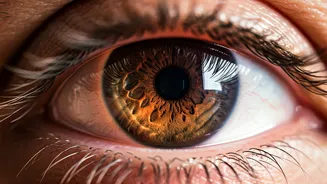Energy Rollercoaster Begins
One of the initial changes you might notice when consuming sugar daily for a month is a shift in your energy levels. You could experience fluctuations,
with periods of elevated energy followed by crashes. This happens because sugar causes a rapid spike in blood sugar, leading to a quick burst of energy. However, this surge is short-lived, and your body then works to bring blood sugar back down. This process often leaves you feeling tired and depleted, setting off a cycle of highs and lows. Your body's response varies based on the amount of sugar consumed and individual metabolism differences. These energy fluctuations could be a clear sign of the impact sugar has on your overall well-being.
Cravings Rise Steadily
As sugar consumption becomes a habit, your cravings are likely to increase. Sugar's addictive properties can lead to a stronger desire for sweet foods. The more sugar you eat, the more your body adapts to it, prompting you to crave it more frequently. This cycle makes it tough to reduce sugar intake, as your body begins to expect and demand it. The constant desire for sugar can become overpowering, making it challenging to make healthier food choices. Understanding this addictive nature is key to managing sugar cravings and working towards a balanced diet. Be mindful of how often you are craving sugar to stay healthy.
Appetite and Mood Shifts
The effects of consistent sugar consumption can also be observed through changes in appetite and mood. Sugar can influence appetite regulation, leading to irregular hunger signals. This can sometimes result in overeating, as your body struggles to recognize when it is full. At the same time, sugar can affect mood, and these shifts could manifest as feelings of irritability or mood swings. For some people, eating sugary foods can trigger a temporary sense of happiness, followed by a subsequent dip as blood sugar levels drop. Recognizing how sugar influences these areas is crucial for promoting overall well-being.
Skin's Losing Glow?
Over time, your skin may start to show the effects of excessive sugar consumption. Increased sugar intake can contribute to skin problems such as acne, premature aging, and a loss of radiance. Sugar can lead to a process called glycation, where sugar molecules attach to proteins, including collagen and elastin. This process damages these proteins, which leads to a loss of skin elasticity and the development of wrinkles. It is also believed that sugar can make the skin more susceptible to breakouts and inflammation. Your skin's appearance could change, indicating that there is a need to re-evaluate your sugar intake.
Feeling Bloated Often?
Another possible effect of eating sugar regularly is that you may feel bloated more frequently. Sugar can cause digestive issues, leading to the retention of water. High sugar intake can also disrupt the balance of gut bacteria, potentially leading to increased gas and bloating. This can make you feel uncomfortable and self-conscious. Staying aware of how different foods affect your body will help you make dietary decisions that promote better digestive health and less bloating. If you find yourself feeling bloated often, consider reducing your sugar consumption.


















